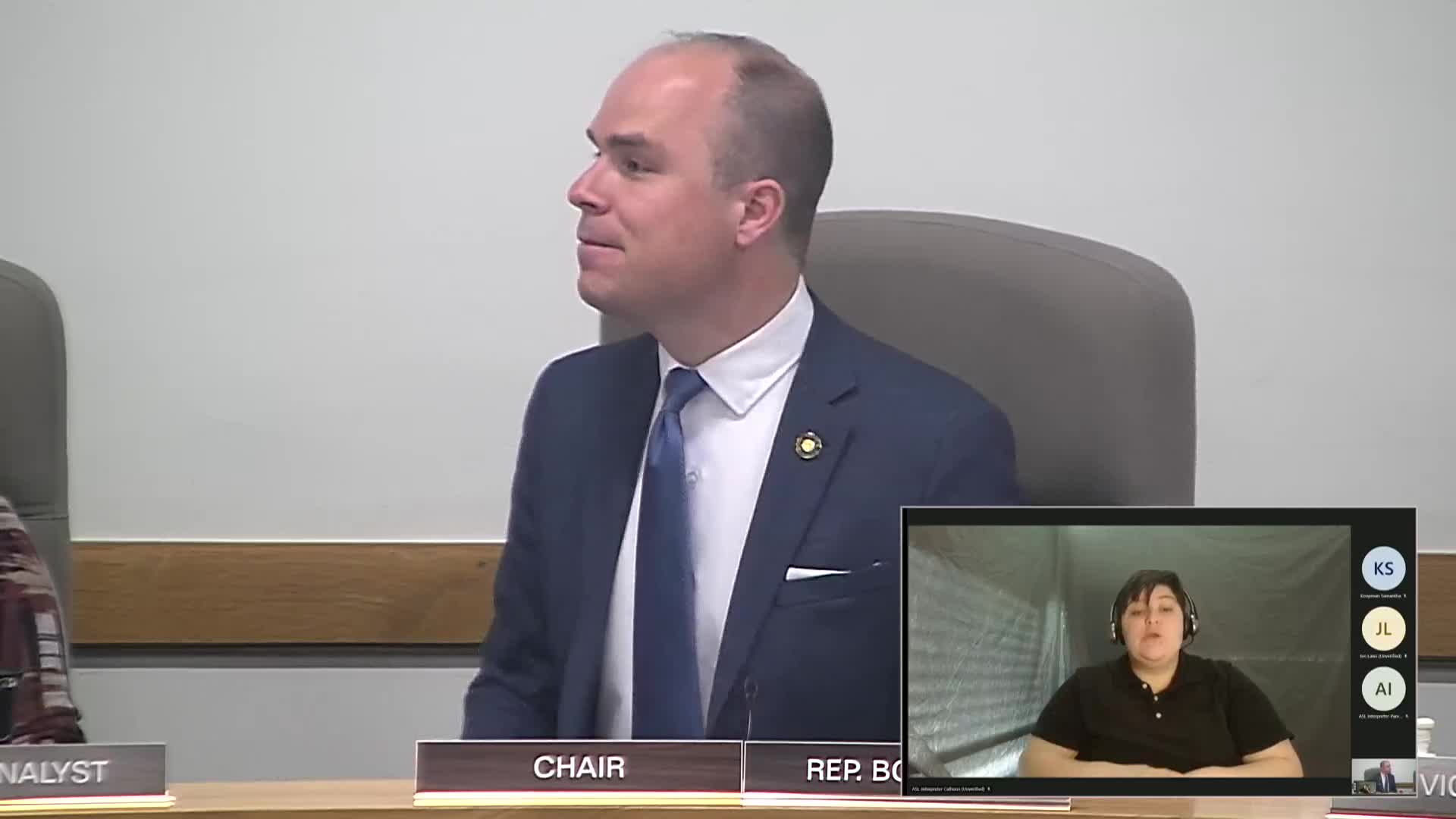Bill would standardize court review for remission of fines and fees; advocates say it increases clarity and access
Get AI-powered insights, summaries, and transcripts
Subscribe
Summary
House Bill 2,491 A would set a manifest-hardship standard and list factors courts should consider when deciding petitions to remit fines or fees; advocates, the Oregon Judicial Department and local legal-services groups supported the clarity but noted implementation details.
House Bill 2,491 A would standardize the process a court uses when deciding petitions to remit fines, fees or costs in certain cases. The House Committee on Rules heard testimony on April 21 from the bill sponsor, advocates and judicial representatives.
Representative Jason Krepp introduced the bill as a measure to provide clarity and consistency for courts and for people seeking remission of monetary assessments imposed in criminal and related proceedings. Krepp said courts typically impose fines or fees after other sentencing components and that the bill is intended to preserve judicial discretion while setting a commonly applied “manifest hardship” standard and enumerating factors for courts to weigh.
Sybil Lehi of the Oregon Law Center told the committee the draft language was developed with input from a broad range of stakeholders, including the Oregon Judicial Department, the Oregon District Attorneys Association, criminal defense and public defender groups, victim organizations, the Oregon Collectors Association, the Oregon Judges Association and the League of Oregon Cities. Lehi said the bill would not change judges’ discretion but would add statutory clarity about factors courts should consider and require the State Court Administrator to create a standardized petition form to be used statewide.
Aaron Knott from the Oregon Judicial Department said the agency was neutral but appreciated the bill’s clarifying language. Knott noted judges already have authority to waive routine fines and fees under existing law and that the bill would provide additional scaffolding to make decisions more consistent across jurisdictions.
Committee members asked how courts would cover any revenue shortfalls if more waivers were granted and whether the bill changes restitution for victims; witnesses emphasized that victim restitution is not affected and that the bill does not eliminate courts’ existing authority.
The committee received no recorded opposition during the hearing and did not take a vote at that time.
